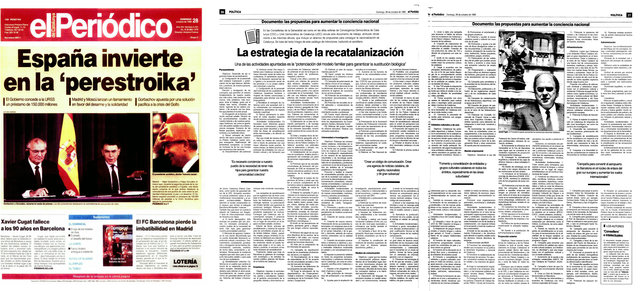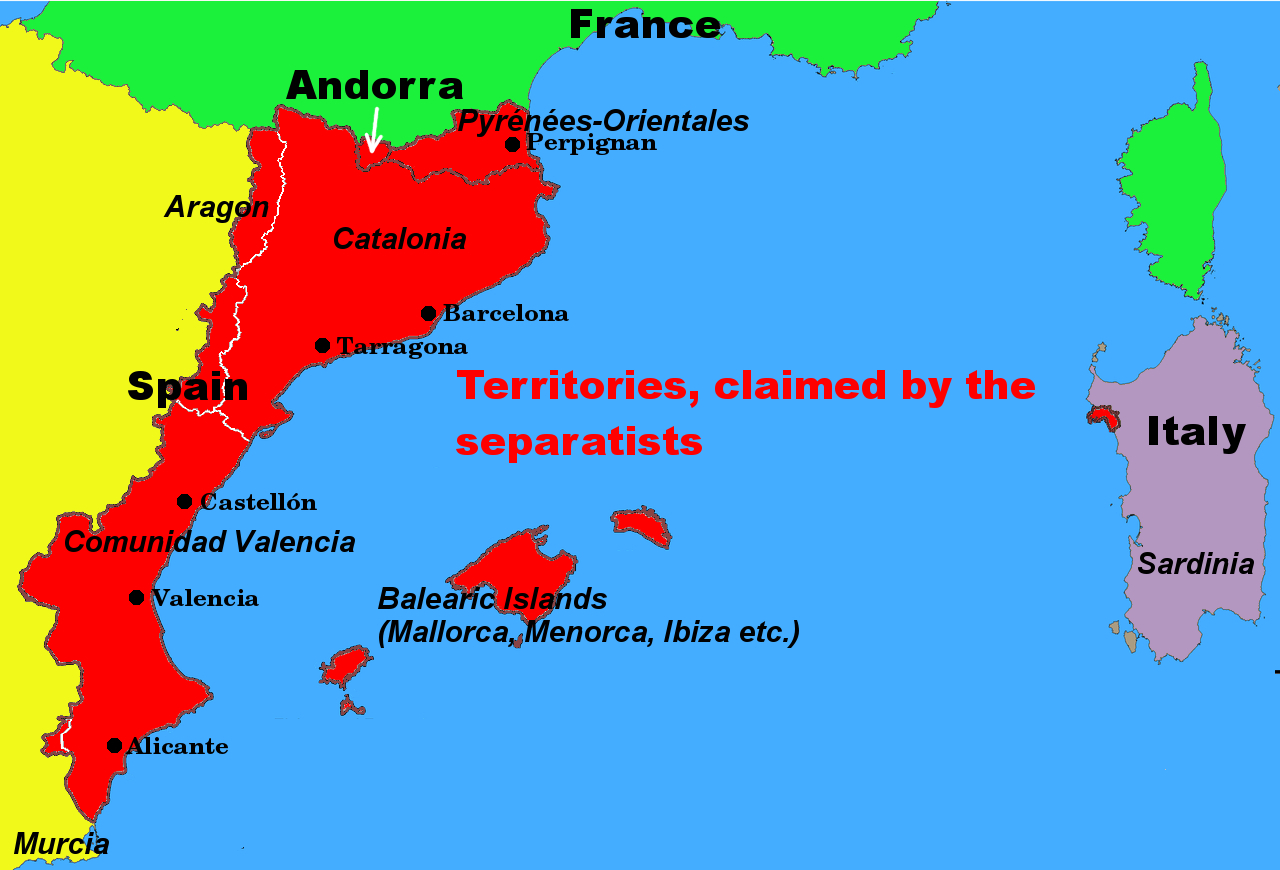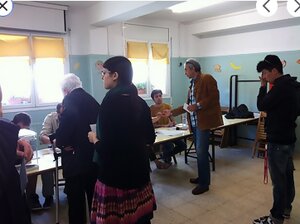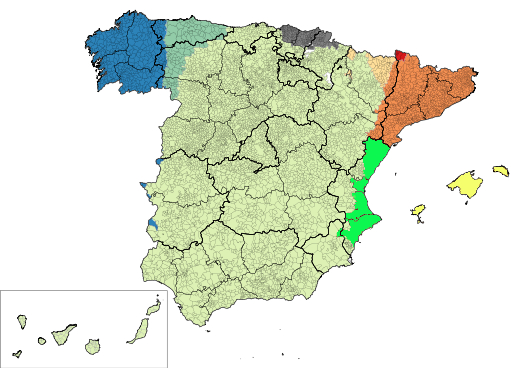El País: „Proces“ buried
Catalonia election: Will language imposition remain?
May 13, 2024
The Catalan Socialists (PSC), „offshoot“ of Pedro Sánchez's PSOE, have won the election and Carles Puigdemont's conservative, neoliberal Junts are in second place, having obviously taken votes away from the ERC. For the separatists, the realization remains that, as before, there is no majority for independence from Spain.
In this respect, this result is initially a reassurance for the continuation of the Spanish government and the tense situation in Catalonia itself. However, the language situation has not been resolved. There are three official languages in Catalonia: Spanish, Catalan and Aranese. The question that therefore concerns us here is what will change in terms of language constraints?
Essentially, 7 parties will determine future events in the Catalan parliament. The election winner PSC, PP and VOX can be seen as unionist, while ERC, Junts and CUP are separatist. The PSC needs the ERC and Comuns Sumar or the Junts to form a government. Comuns Sumar is trying to avoid the question of independence and, in my opinion, seems to attach more importance to a feminist Catalonia. In any case, the result of the election means a strengthening of the Spanish government under Sánchez; the demands of the separatists are unlikely to be minimized in return for Sánchez's support. As a result, nothing will really change in Catalonia or Spain on any of the key issues.
This applies above all to the language imposition in Catalonia. In principle, the election winner, the PSC and the PP have the same position on this issue as the separatists. In other words, the politicians want to decide how the people should speak and in which language the pupils should learn. Only the VOX seems to be an exception, if you read their position. It should be noted, however, that in Valencia, after forming the government together with the conservative PP, they have „forgotten“ their demands for a free choice of the language of instruction.
Let's take a look at what the promises1 were.
Esther Niubó (Partido de los Socialistas de Cataluña / Sozialist Party of Catalonia): „On the language issue, she defended the retention of compulsory immersion classes in Catalan for Spanish-speaking pupils...“
Anna Simó (Izquierda Republicana de Cataluña / Republican Left of Catalonia): „She defended the promotion of inclusive schools and the increased use of Catalan as the two fundamental measures to improve results and called for a national agreement on these two issues. She said that the use of Catalan in secondary schools had decreased, that the requirement of a minimum of 25% in Spanish was an attack on Catalan and that a new retraining of teachers was needed, with an increase in the number of Catalan modules for vocational teachers“
Francesc Ten (Juntos por Cataluña/Junts): „He defended ... the promotion of inclusive schools ... and the promotion of the use of Catalan...to ask inspectors to take action if Catalan is not also used in the corridors, canteens and extra-curricular activities, to prevent teachers from changing languages, to ensure that Catalan is always used in school councils...“
Manuel Acosta (VOX - extreme right): „He began by stating that two languages have been spoken in Catalonia for more than 500 years, that currently 55% of Catalans have Spanish as their mother tongue, that Spanish is not a minority language but a minoritised language, that many millions have been invested in the promotion of Catalan despite the poor results of students in the 2022 PISA tests, that the study by Calero and Choi found a loss of around 12 PISA points in the results of Spanish-speaking Catalan pupils, and therefore proposes that parents be given a free choice of language models. “
David Caño (CUP - extreme left): No mention of the language situation in the AMES document..
Fernando Sánchez Costa (Partido Popular de Cataluña / Popular Party of Catalonia [PP]): „He warned that the current language policy was making his mother tongue, Catalan, an unappealing language for many. He defended the adoption of the rule that at least 25% of lessons must be in Spanish and said that currently very few students want to keep the system of compulsory immersion in Catalan. He claimed that subjects should not be taught in English because they do not learn these subjects, but that if necessary, more hours should be taught in English. “
Comuns Sumar: No statement on the free choice of language in the election program.2
Language imposition remains explosive
Actually, it's simple. Democratic is when everyone can freely choose their official language, when parents can decide that their children can learn in their mother tongue at school. It is said that in Catalonia more than 90% understand Catalan and Spanish. Those who are not oppressed in their choice of language are happy to express themselves in the other official language in order to communicate. Being forced to speak one language triggers hatred.
This is another reason why Spanish and regional estremnationalists need each other in their mutual struggle. In April, in my article Left, Right, Regionalism, Nationalism, Globalism, I concluded by asking the question: „Are all these arguments about independence from the Spanish state and the confusion of terms around left and right only good for distracting attention from more important issues?“
The majority of statements made by the ruling parties in Catalonia indicate that the language imposition will not be ended. The Spanish-speaking majority in Catalonia will continue to have to live with the fact that their children are not allowed to study in their mother tongue in Catalan schools. The administration will remain monolingual Catalan in everyday life.
Language imposition has often led to violence in history.3 Fortunately, this is not the case in Catalonia at the moment. But the explosive material has not been eliminated either.
Footnotes
1 All quotes from Propuestas sobre educación de los partidos políticos que se presentan a las elecciones catalanas del 12M by the teacher's union AMES. (Proposals on education by the political parties standing in the Catalan elections on 12M)
2 AMES has not listed Comuns Sumar. There is also no reference to the free election language in the Comuns program.
3 see also my article series: „Language imposition and democracy“, starting with the 1st part of the uprising in Soweto, South Africa in 1976 To hell with Afrikaans
| | | | Click here to subscribe or cancel your subscription |
Myths and deceptions of Catalan nationalism

Here you'll find the translation
Languages in Spain
Spanish, Basque, Catalan, Mallorquin, Valenciano etc.
The strategy of recatalanization
 1980 the Spanish journal "El Periodico" published a secret document about the strategy of the Catalan government. It shows in a frightening way the actual spiritual world of the separatist leaders.
1980 the Spanish journal "El Periodico" published a secret document about the strategy of the Catalan government. It shows in a frightening way the actual spiritual world of the separatist leaders.Now it is available in english translation.
Pancatalanism
the separatist's imperial claim
 The Catalan government exports the conflict into communities with Catalan population, supporting all efforts of the separatists including financial means to destroy Spain.
The Catalan government exports the conflict into communities with Catalan population, supporting all efforts of the separatists including financial means to destroy Spain. An important tool is the establishment of a language dictatorship that is not afraid to use the same means as Franco.
Separatist indoctrination

Click here to read the study
Language imposition and democracy

An essay in 6 parts on the potentially violent effect of language imposition containing contributions from South Africa, Catalonia, Ukraine and France.
go to part 1 SticSti
Publications
 The title says: "Catalonia, a conflict is exported. Insights of a migrant"
The title says: "Catalonia, a conflict is exported. Insights of a migrant"Sorry, up to now, this book is only available in German. However, drop us a line, if you are interested to learn more Contact.

